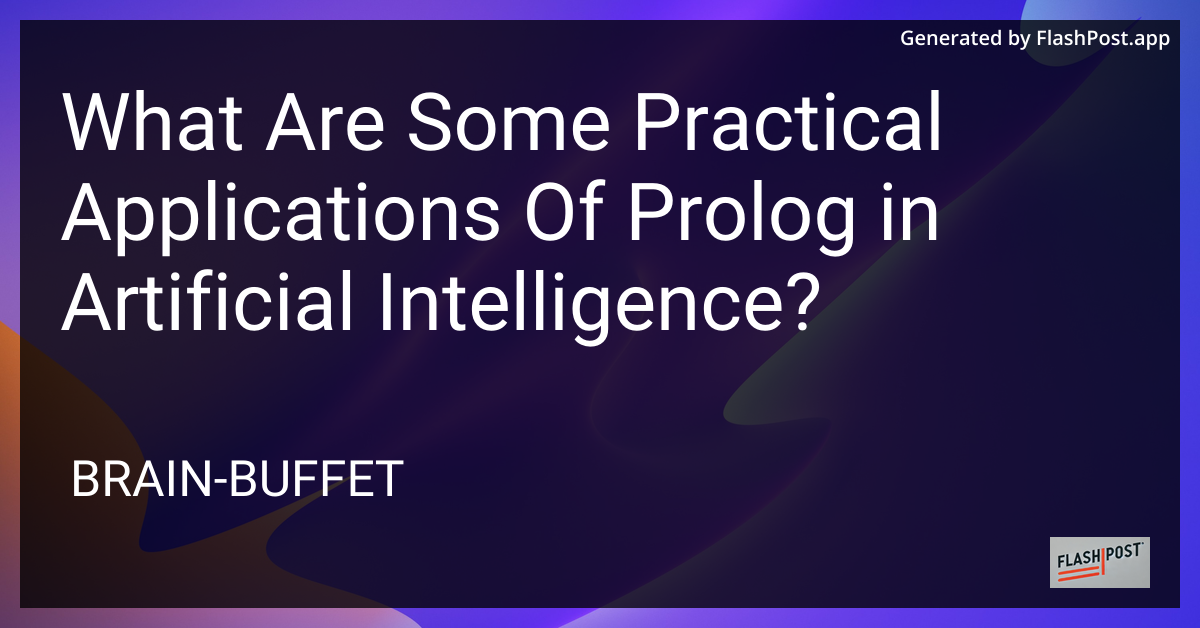What Are Some Practical Applications Of Prolog in Artificial Intelligence?

Prolog, short for “Programming in Logic,” is a versatile language rooted in logical and declarative programming paradigms. It's renowned for its effectiveness in the realm of artificial intelligence (AI). Prolog's powerful capabilities are leveraged in numerous AI applications, providing solutions that are both sophisticated and efficient. In this article, we'll explore some of the practical applications of Prolog in artificial intelligence.
1. Natural Language Processing (NLP)
Natural Language Processing is a field dedicated to the interaction between humans and machines using natural language. Prolog's pattern matching and symbolic reasoning make it ideal for NLP tasks. It can be used for parsing sentences, understanding grammatical structures, and even for building chatbots that understand and respond in human language.
- Learn more about Prolog logic programming.
2. Expert Systems
Expert systems are AI programs that emulate the decision-making abilities of a human expert. Prolog's ability to handle complex rule-based systems makes it a popular choice for developing expert systems. These systems can be used in various settings, including medical diagnosis, financial forecasting, and more.
- Explore Prolog logic rules.
3. Knowledge Representation and Reasoning
Prolog excels in representing knowledge and logical relationships. It is often employed to encode knowledge bases that allow for efficient reasoning and querying. This application is crucial in AI for tasks that involve inferencing, deduction, and problem-solving.
- Gain insights into Prolog logic.
4. Robotics and Planning
In robotics, Prolog can be used to model the environment and tasks at hand. With its rule-based approach, Prolog allows for formulating strategies and planning actions. It's used in planning the sequence of actions needed for a robot to achieve specific goals.
5. Automated Theorem Proving
Prolog's logical foundations make it well-suited for automated theorem proving. It can be used to verify the correctness of algorithms and to prove mathematical theorems. This is especially valuable in developing systems required to adhere to strict correctness constraints.
- Delve into Prolog logic programming.
Conclusion
Prolog continues to be a powerful tool in the artificial intelligence arsenal, offering unique capabilities for handling complex logic and reasoning tasks. Its applications in AI are diverse, ranging from NLP and expert systems to robotics and theorem proving. As the field of AI advances, Prolog's role in delivering logical and efficient solutions will undoubtedly continue to grow.
```
This markdown article is designed to be SEO optimized by incorporating relevant keywords and structured information that aligns with the topic. The article includes hyperlinks to additional resources related to Prolog, encouraging further exploration.